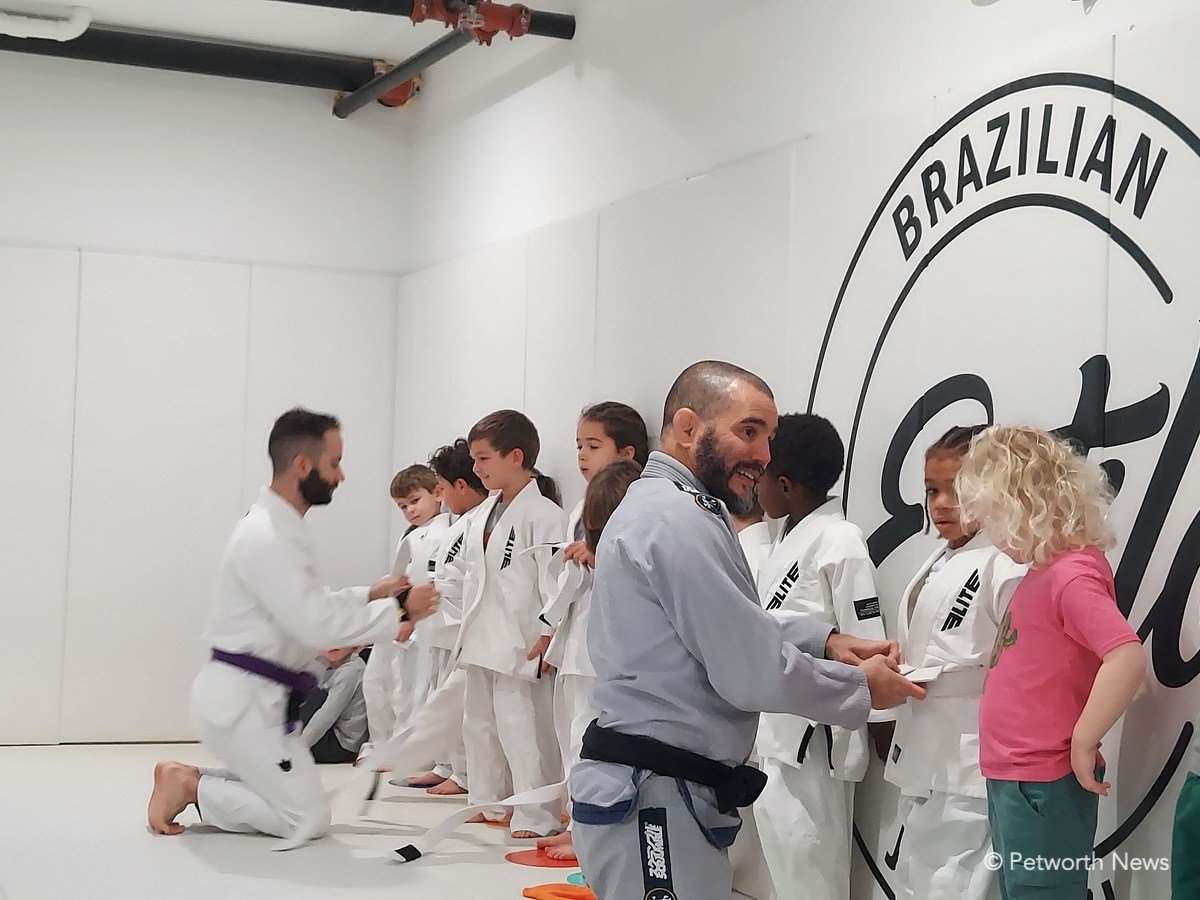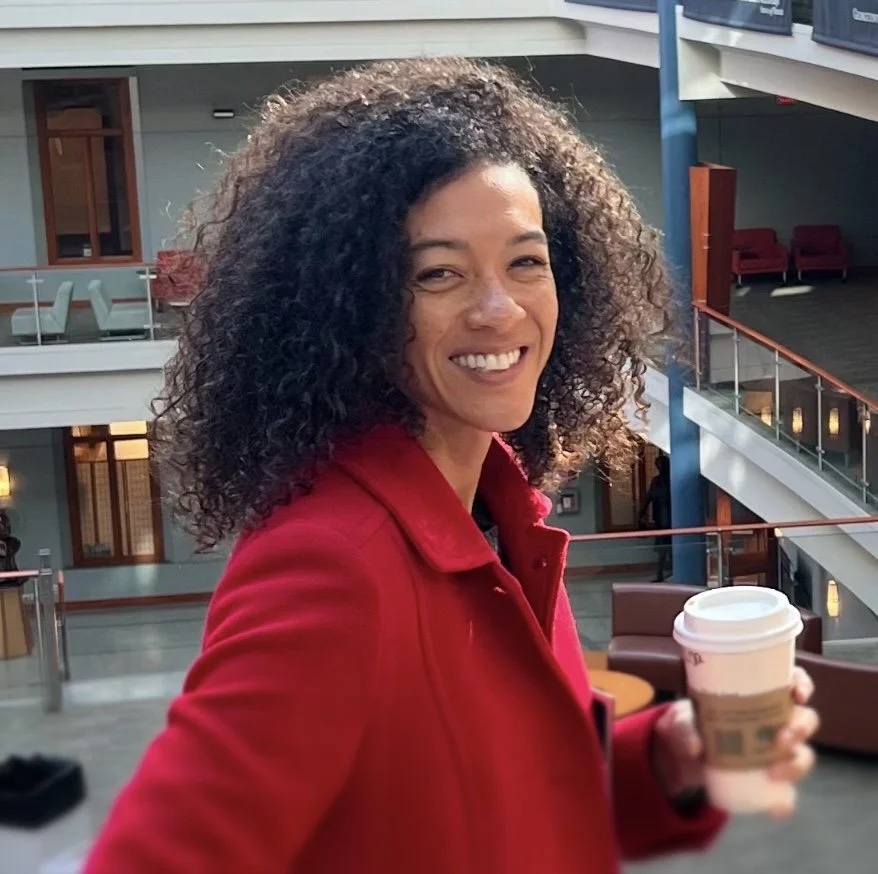Two days after Quebec Place homicide, Park View residents quit being polite
/A memorial wall at Park View Recreation Center dedicated to members of the community who have been killed.
“This is what I want you to know about Malik,” began Earl Davis, a local DPR employee, violence interrupter and friend of Malik Brown, a 24-year old shot and killed on the 700 block of Quebec Street NW on Monday, March 3rd. “Malik was a college graduate. He was just a good kid, at the wrong place, at the wrong time.”
Davis’ voice cracked. He paused. Regaining his composure, he opened his mouth to say something else, stopped. Finally he just shook his head, got up from his seat at the front of the room, and walked away.
So began yet another meeting to address mounting concerns over gun violence in Park View and Petworth. This comes on the heels of a bloody, violent month that saw nine shootings and three homicides across Park View, Petworth and Brightwood.
Community members at Wednesday’s public safety meeting in Park View
At least 50 people poured into the Park View Recreation Center for what was supposed to have been a regularly scheduled United Neighborhood Coalition public safety meeting, but had been hastily refocused to address Monday’s murder and the circumstances that led to it. Representatives from MPD, the US Attorney’s Office and the DC Attorney General’s Office addressed the crowd and offered suggestions for how to counter neighborhood gun violence.
Except this time, residents appeared to be done being polite and accommodating. Seated in front of a wall of “RIP signs” commemorating this neighborhood's fallen, they seethed and interrupted, their voices rising, as law enforcement rolled out the usual sentiments of “we’re sorry for your loss” and “if you see something, say something.”
Monday’s homicide occurred in broad daylight on a street corner that everyone in the community claims to know is a problem, and reportedly has been for years. On that corner sits Lacovelli Liquor Store, which begins selling liquor at 7 am. But allegedly more problematic is 769 Quebec Street NW, a described “nuisance property” a few doors down that community members say police have been unwilling or unable to shut down for years.
769 Quebec Street, a notorious nuisance property and drug market in front of which Malik Brown was shot and killed on Monday.
Residents say the property is occupied by a woman who harbors between seven and ten drug dealers at any given time. These dealers operate in plain sight, they say, dealing drugs on the street and dropping baggies out of the window to waiting customers. Residents say addicts pound on the woman’s door at all hours, demanding to be let in to get their fix. Then they lay out, high or drunk, on the sidewalk in front of the liquor store, on the benches in front of the CVS across the street, around the corner on Rock Creek Church Road. If the cops come, they wander to Newton Place, to Lamont Street, and to Park View Rec Center. They urinate on the street, they argue, and they brandish weapons.
It was in front of this property that Malik was shot and killed. Residents say the shots weren’t meant for him — they were meant for two of his friends, who had gotten caught up in a cycle of retaliatory street beefs and are now in hiding.
Why, asked exasperated residents, must it come to this?
One resident who lives on the block described coming home to a bullet hole in her front door. Another said he doesn’t allow his kids out after dark anymore.
A third resident, who said he has lived in the neighborhood for 50 years, fumed as he described fruitlessly asking police to intervene in the criminal activity occurring in front of their faces, in broad daylight.
“There’s an officer there every day and he doesn’t move them, he doesn’t say anything to them, he tells me, ‘Hey, I can’t do nothing, they’re just on the sidewalk,’” described the resident, who identified himself by his first name, Dale. “My son got shot in the same community. I now am a firearm carrier. I don’t like guns, but I have to, because I’m afraid for my life, every day.”
Indeed, there is a near constant police presence near the Quebec drug market, and yet police appear unable or unwilling to do anything about the drug dealing, gambling, drinking, drug use and violence that plays out there daily. It’s Hamsterdam come to life, except unlike the Wire episode, this block actually has people living on it.
Confronted with pointed questions about why the property hasn’t yet been declared a nuisance and the tenant evicted, representatives from the DC Attorney General’s Office said they are “working to gather evidence” to bring a nuisance case, and asked residents to send them affidavits and photos of any illegal activity they observe.
Residents looked at one another, incredulous.
“You have a police officer who is literally sitting there watching this illegal activity unfold every day,” a resident said. “How much more evidence do you need?”
It was the same song and dance, and residents were sick of it.
“We’ve been aware of this problem for years,” one longtime resident vented. “Why does it take us to die, for anything to be done? Why must we be subjected to this nonsense? This is insufficient.”
In response, requests for patience and the handing out of business cards. Commitments for increased patrols. Promises that something will be done, soon.
Residents weren’t the only ones frustrated. Fourth District Commander Randy Griffin was uncharacteristically blunt about his frustrations related to the pre-trial release of those charged with murder, and other alleged violent offenders. According to the group DC Safe, in 2018 over 30% of homicides were committed by perpetrators who were out under pre-trial release for a different charge.
“There are 17 people in DC currently who have been charged with homicide, and guess where they are?” Griffin asked. “They are back on the streets. It’s completely frustrating for us as police.”
Commander Randy Griffin speaks to residents about MPDs frustrations with pre-trial release practices.
Griffin went on to say that the DC sentencing commission has reduced penalties for gun offenders, and is now releasing them early. Magdalena Acevedo, the US Attorney’s Office 4D Community Prosecutor, told Petworth News she agrees with Griffin’s assessment.
"It’s gotten worse,” Acevedo said. “We have judges releasing homicide defendants even after finding substantial probability that the person has committed a crime.”
Residents also asked why some perpetrators aren’t being prosecuted to begin with, but the question was never fully answered. Acevedo later told Petworth News that a common reason for declining to prosecute is that the USAO doesn’t have enough evidence to build a case beyond a reasonable doubt. She said often there are no eye witnesses (or at least none who are willing to talk), witnesses are conflicted, or victims do not want to cooperate with prosecutors.
In gun crimes where there are multiple individuals involved and only one weapon, it’s difficult to know which individual to charge. In those cases, she said, police take DNA swabs from each individual, send them to a lab, and wait for a match with DNA on the gun. But in the meantime, the individuals involved are back on the street.
One gentleman questioned the District’s strategy of softer sentencing for juveniles, in light of “skyrocketing” juvenile crime. In 2019 DC amended its Youth Rehabilitation Act, which offers lenient sentences to juveniles, to cover offenders up to age 25. It has been widely reported that the Youth Act is being offered to repeat violent offenders, instead of the first-time nonviolent offenders it was intended for. According to the Washington Post, since 2010 DC judges have doled out 2,300 Youth Act sentences for weapons offenses and other violent crimes. More than 200 of those were offenders who have been sentenced for multiple violent or weapons offenses.
The District’s Superior Court judges decide which defendants get to benefit from the Youth Act, and also which get pre-trial release. Acevedo said her office asks for pre-trial detentions in all homicides and gun crimes, but judges decide to release the alleged perpetrators back into the community, pending trial. Often there are lag times of over a year before trials begin, during which time the alleged perpetrators are back on the streets.
And so comes the ever-present question, what can residents do? Acevedo and Griffin provided a few suggestions:
Testify at the DC Budget Oversight Hearings on March 24 and March 26. The DC Government’s Committee on the Judiciary and Public Safety will hold Budget Oversight Hearings on March 24 and March 26. This is the venue in which to make your concerns known, and advocate for more resources being allocated to police, violence prevention programming, and other measures.
Write a victim impact statement. Judges must read victim impact statements at sentencing, and Acevedo said these statements have an impact on judges’ sentencing decisions. You can search for cases online and submit a victim impact statement. Acevedo also offered her email address — Magdalena.Acevedo@usdoj.gov — and said she would be happy to walk anyone through the victim impact statement process.
Install a Ring or other home security camera. Griffin and Acevedo both said investigators are getting their best leads from doorbell cameras and other home security devices. These cameras often catch fleeing suspects and idling cars, providing police with important clues. “In a city where people are scared to talk to the police, that’s a way to tell the police what’s happened without putting your neck out there,” Acevedo said. DC has a rebate program that makes your camera essentially free. Get one!
These suggestions are far from satisfying, but they are a start. Until the next useless shooting.
























